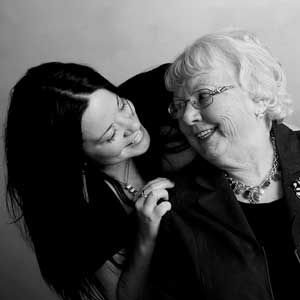One option for consideration is a Homeshare scheme which could meet the need for practical support and companionship for older LGBT individuals living in their own home, as well as building links between different LGBT generations.
Homeshare schemes are where an older householder offers a spare room to a younger person in return for a minimum of 10 hours a week practical help or support or companionship. There is no financial exchange between the householder and the homesharer, but the arrangement is of mutual benefit to both.
The arrangement would be facilitated by an organisation who would offer ongoing contact and assistance for a small monthly fee. There are growing numbers of Homeshare projects but none that are specific to LGBT people.
Homeshare is not a solution for most people, but where it works well is invaluable. It requires the older person to have a spare bedroom, and at present most schemes are restricted to home owners.
Although it may not offer a long term solution but can provide the help needed to enable an older person to remain independent and living in their own home for some considerable time. It also provides affordable temporary accommodation for a younger person.
Issues that need to be considered include:
- support to make a good match between householder and homesharer;
- safeguarding policy and good practice to ensure both parties are safe and protected;
- funding for a project to recruit and check participants, find and support the matches.


Homeshare is one of those things that looks great in theory but really hard and costly to put into practice. There are a number of things that need to be addressed:
– Who are the sharers? It often works better in urban areas where the sharer is a student.
– Short-term or long-term solution – it is unlikely that the sharer will stick with it in the long term so this needs to be accounted for from the start.
– Safe-guarding is an issue for both the older person and the younger person. This is not just and issue of safeguarding the older homeowner
– How do you resource the matching – this is a time intensive process and people need support. There is often a high per head cost.
– What happens when the sharer is able to fulfill their end of the bargin? How do people take holidays and time away. Who supports someone in these circumstances? This is all doable but it is not easy, doesn’t happen quickly and can be expensive to facilitate.
– Do providers see older LGBT people as a potential market for their care and support services?